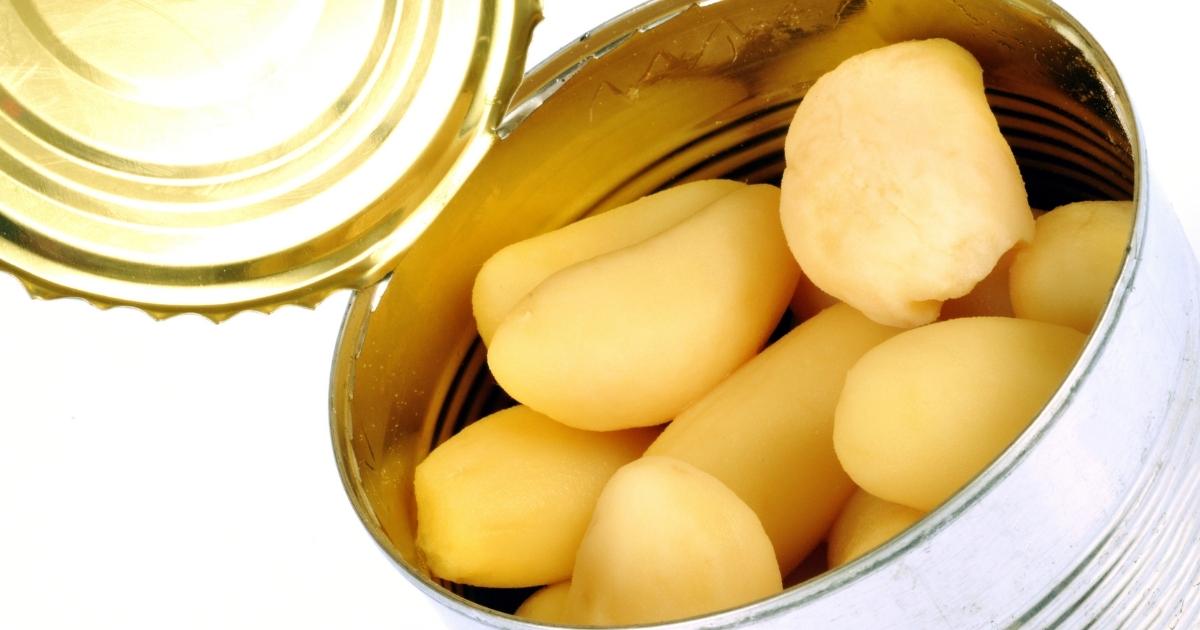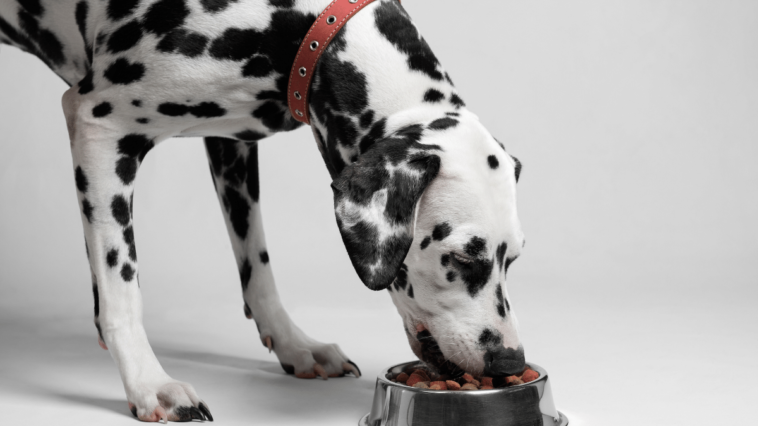As pet owners, we often find ourselves questioning what human foods are safe for our furry friends. One common query is, “Can dogs eat potatoes?” Potatoes are a staple in many households, often featured in various dishes. However, just because something is safe for humans doesn’t mean it’s safe for dogs. In this in-depth guide, we will explore whether potatoes are a healthy choice for your dog, the benefits and risks involved, and how to safely prepare them.
Are Potatoes Safe for Dogs?
Understanding Potatoes: Nutritional Profile and Types
Potatoes come in many varieties, including white, red, yellow, and sweet potatoes. Each type has its own unique nutritional profile. White potatoes, the most common type, are rich in carbohydrates and provide essential vitamins like vitamin C, vitamin B6, and minerals such as potassium and magnesium. On the other hand, people celebrate sweet potatoes for their high beta-carotene content, which the body converts to vitamin A.
While these nutrients are beneficial, it’s important to remember that potatoes are not a complete food source for dogs. They should complement a balanced diet rather than serve as a primary food item. Understanding the nutritional content of potatoes and how they can fit your dog’s overall dietary needs is crucial.
Cooked vs. Raw Potatoes: The Solanine Issue
Solanine, a naturally occurring toxin in raw potatoes, especially green or sprouted ones, is a major concern when feeding potatoes to dogs. Solanine can be harmful if ingested in large quantities, leading to symptoms like lethargy, vomiting, and diarrhea. In severe cases, it can affect the nervous system.
Cooking potatoes reduces the solanine levels, making them safer for dogs. However, not all cooking methods are equal. Boiling and steaming are the most effective ways to eliminate solanine, while baking, although safe, may not reduce the substance as much.
Can Dogs Eat Sweet Potatoes vs. Regular Potatoes?
Experts often recommend sweet potatoes over regular potatoes because of their lower glycemic index and higher nutrient density. They are rich in dietary fiber, which supports healthy digestion, and contain significant amounts of vitamin A, which is crucial for maintaining healthy vision, skin, and the immune system.
Regular potatoes, particularly white potatoes, have a higher glycemic index, meaning they can cause a spike in blood sugar levels. This is a critical consideration for dogs with diabetes or those prone to obesity. However, when fed in moderation and properly prepared, regular potatoes can be a nutritious treat.
Health Benefits of Potatoes for Dogs

- Energy-Boosting Carbohydrates
Potatoes are an excellent source of carbohydrates, which are essential for providing energy. Active dogs, particularly those that engage in a lot of physical activity, can benefit from the energy boost that potatoes provide. Dogs break down carbohydrates into glucose, their primary energy source.
However, it’s important to balance this energy source with your dog’s activity level. Overfeeding carbohydrates can lead to weight gain, especially in less active dogs or those predisposed to obesity. It’s crucial to monitor portion sizes and ensure that potatoes are part of a balanced diet.
- Rich in Vitamins and Minerals
Dogs’ bodies benefit from the essential vitamins and minerals found in potatoes. Here’s a closer look at some of the key nutrients:
- Vitamin C: While dogs can synthesize their own vitamin C, incorporating it into their diet can provide additional antioxidant benefits. Vitamin C helps protect cells from damage, supports the immune system, and promotes healthy skin.
- Vitamin B6: This vitamin plays a vital role in brain development and function. It is involved in producing neurotransmitters, which are crucial for normal brain function and regulation of mood and behavior.
- Potassium: Potatoes are a beneficial source of potassium, an electrolyte that is important for maintaining proper muscle and nerve function. Potassium helps regulate fluid balance in the body, supports normal blood pressure, and aids in muscle contractions.
- Digestive Health Support
The dietary fiber found in potatoes can promote healthy digestion in dogs. Fiber is important for regular bowel movements and can be particularly beneficial for dogs with mild digestive issues such as constipation or irregular bowel movements.
However, it’s important to note that too much fiber can have the opposite effect, leading to gastrointestinal discomfort or diarrhea. Therefore, you should feed potatoes in moderation and balance the fiber content with other components of your dog’s diet.
- Potential Antioxidant Benefits
Both white and sweet potatoes contain antioxidants, which help neutralize free radicals and reduce oxidative stress. Chronic diseases such as cancer and heart disease are associated with oxidative stress. Incorporating antioxidant-rich foods like potatoes into their diet may help support their long-term health.
- Contribution to a Balanced Diet
Potatoes can complement a well-rounded diet by providing a variety of nutrients. When combined with high-quality proteins and other vegetables, potatoes can help create a nutritionally complete meal that supports overall health. For instance, a meal consisting of boiled potatoes, lean chicken, and steamed green beans can offer a beneficial balance of protein, vitamins, and fiber.
Potential Risks of Feeding Dogs Potatoes
- Solanine Toxicity: A Serious Concern
Raw potatoes, especially green or sprouted ones, contain solanine, a toxic substance. Solanine can be toxic to dogs if consumed in large quantities, leading to symptoms such as gastrointestinal upset, lethargy, and, in severe cases, neurological problems.
To minimize the risk, always peel and cook potatoes thoroughly before feeding them to your dog. Avoid feeding them potatoes that have green spots or sprouts, as these indicate higher levels of solanine.
- High Glycemic Index: Impact on Blood Sugar Levels
Potatoes have a high glycemic index, which means they can cause a rapid spike in blood sugar levels. This is particularly concerning for dogs with diabetes or those at risk of obesity. Rapid fluctuations in blood sugar can lead to insulin resistance over time, increasing the risk of developing diabetes.
For dogs with diabetes or weight management concerns, sweet potatoes may be a better option due to their lower glycemic index. However, you should feed sweet potatoes in moderation, particularly if your dog tends to gain weight.
- Allergic Reactions: Watch for Symptoms
Although uncommon, some dogs may be allergic to potatoes. Signs of a potato allergy include itching, skin rashes, hives, and gastrointestinal upset, such as vomiting or diarrhea. If your dog exhibits any of these symptoms after eating potatoes, stop feeding them and consult your veterinarian.
Sometimes, people confuse allergic reactions with food intolerances, which are less severe but can still cause discomfort. If your dog has a sensitive stomach or a history of food allergies, it’s best to introduce potatoes gradually and monitor their response.
- Potential Weight Gain
Potatoes are high in carbohydrates, which can contribute to weight gain if fed in large quantities. Obesity is a common health issue in dogs and can lead to a range of problems, including joint pain, diabetes, and heart disease. If your dog is overweight or prone to gaining weight, it’s important to limit their intake of high-carbohydrate foods like potatoes.
Incorporating potatoes as an occasional treat rather than a regular part of their diet can help prevent weight gain. To create a well-rounded diet, always balance potatoes with other nutrients such as lean proteins and vegetables.
How to Safely Prepare Potatoes for Dogs
- Cooking Methods: Boiling, Baking, and Steaming
The method you choose to cook potatoes can significantly impact their nutritional value and safety for your dog. Here’s a breakdown of safe cooking methods:
- Boiling: Boiling is the simplest and safest way to prepare potatoes for dogs. It helps retain most of the nutrients while ensuring that the potatoes are soft and simple to digest. To boil potatoes, peel them and cut them into small, even-sized pieces. Place them in a pot of water, bring to a boil, and cook until tender. Once cooked, mash them lightly or serve them in small chunks.
- Baking: Baking is another healthy option. However, it’s important to avoid adding any seasonings, butter, or oil, as these can be harmful to dogs. To bake potatoes, preheat your oven to 400°F (200°C), pierce the potatoes with a fork, and bake until soft. Once baked, allow them to cool before serving.
- Steaming: Steaming is an excellent way to preserve the nutrients in potatoes while making them simple to digest. To steam potatoes, peel and cut them into small pieces, place them in a steamer basket over boiling water, and steam until tender. This method is especially beneficial for dogs with sensitive stomachs.
- Portion Control: Moderation Is Key
While potatoes can be a nutritious addition to your dog’s diet, they should only make up a small portion of their overall food intake. A general guideline is that potatoes should account for no more than 10% of your dog’s daily caloric intake. This ensures that your dog gets a balanced diet without overloading on carbohydrates.
When introducing potatoes to your dog’s diet, start with small portions and monitor their reaction. If your dog tolerates it well, gradually increase the serving size. Always consult your veterinarian if you’re unsure about the appropriate portion size for your dog.
- Combining with Other Foods: Creating a Balanced Meal
You can mix potatoes with other dog-friendly vegetables and lean proteins to create a balanced meal. For example, you can combine boiled potatoes with steamed carrots, green beans, and cooked chicken or turkey. This not only provides a variety of nutrients but also makes the meal more palatable for your dog.
Here are a few balanced meal ideas that incorporate potatoes:
- Potato and Chicken Mash: Mix boiled potatoes, shredded cooked chicken, and steamed peas. This meal offers a satisfactory balance of protein, carbohydrates, and vitamins.
- Turkey and Potato Stew: Cook ground turkey with diced potatoes, carrots, and green beans. This hearty stew is rich in protein and fiber.
- Vegetable Medley: Mix boiled potatoes with steamed broccoli, carrots, and zucchini. This dish is a wonderful vegetarian option for dogs, packed with vitamins, minerals, and fiber.
- Avoiding Harmful Additives: Keep It Plain
When preparing potatoes for your dog, it’s crucial to avoid adding any harmful ingredients like salt, butter, garlic, or onion. These additives can be toxic to dogs or cause gastrointestinal upset. Plain, unseasoned potatoes are the safest option.
If you’re using store-bought potatoes or mashed potatoes, be sure to check the ingredient list for any additives. Many pre-packaged potato products contain added salt, preservatives, or artificial flavors that can be harmful to dogs.
Potatoes in Commercial Dog Food
- Why Potatoes Are Used in Dog Food
Commercial dog foods commonly use potatoes as a carbohydrate source, particularly in grain-free formulas. They serve as a replacement for grains like rice, corn, and wheat, which some dogs are allergic to or have difficulty digesting. Potatoes provide a digestible source of energy and help bind the ingredients in kibble or canned food.
- Grain-Free Dog Food Controversy
In recent years, there has been some controversy surrounding grain-free dog foods that contain high levels of potatoes. The U.S. Food and Drug Administration (FDA) has investigated a potential link between grain-free diets and an increase in cases of canine dilated cardiomyopathy (DCM), a serious heart condition.
While the exact cause is still under study, some researchers believe that the high content of potatoes and other legumes in grain-free diets may interfere with taurine absorption, an amino acid crucial for heart health. Researchers have linked taurine deficiency to DCM in dogs.
If you’re considering a grain-free diet for your dog, it’s essential to consult with your veterinarian to ensure it meets their nutritional needs. In some cases, a diet that includes grains or other carbohydrate sources may be more appropriate.
- Choosing the Right Dog Food
When choosing a commercial dog food that contains potatoes, it’s important to read the ingredient list carefully. Look for high-quality dog food where potatoes are not the primary ingredient. A well-balanced dog food should have a high-quality source of protein (such as chicken, beef, or fish) as the first ingredient, followed by a mix of vegetables, fruits, and grains or legumes.
Avoid dog foods that contain excessive amounts of fillers or artificial additives. The best dog foods will provide a balanced blend of nutrients, including protein, fats, carbohydrates, vitamins, and minerals.
FAQs About Dogs and Potatoes
Can Dogs Eat Mashed Potatoes?
Yes, dogs can eat mashed potatoes, but it’s important to prepare them without any added butter, milk, or seasoning. Serving plain, boiled, and mashed potatoes in moderation ensures their safety for dogs.
Are Potato Skins Safe for Dogs?
Dogs should not consume potato skins. They can be difficult to digest and may contain higher concentrations of solanine, especially if the potatoes have green spots. Always peel potatoes before cooking them for your dog to ensure they are safe to eat.
Can Dogs Eat French Fries or Potato Chips?
No, dogs should not eat French fries or potato chips. These foods are high in fat, salt, and potentially harmful seasonings, which can lead to obesity, pancreatitis, and other health issues in dogs. Instead, opt for plain, boiled potatoes if you want to share a potato snack with your dog.
How Often Can I Feed My Dog Potatoes?
You should only occasionally feed potatoes to your dog as a treat or supplement to their regular diet. A small serving once or twice a week is sufficient for most dogs. Overfeeding potatoes can lead to weight gain and other health issues, so it’s important to monitor portion sizes.
Alternatives to Potatoes for Dogs
If you’re looking for other healthy vegetable options for your dog, consider the following:
- Carrots: Low in calories and rich in beta-carotene, carrots are a great crunchy snack for dogs. They also help promote dental health by reducing plaque buildup.
- Pumpkin: Because of its excellent digestive health, dogs often use pumpkin to treat diarrhea or constipation. It’s rich in fiber and vitamins, making it a beneficial alternative to potatoes.
- Green Beans: High in fiber and low in calories, green beans are a nutritious addition to your dog’s diet. You can serve them steamed, boiled, or raw.
- Sweet Potatoes: As mentioned earlier, sweet potatoes are a nutrient-rich alternative to regular potatoes. They are high in dietary fiber, vitamins, and antioxidants.
Conclusion
So, can dogs eat potatoes? The answer is yes, but with some important caveats. Potatoes can be a healthy and nutritious addition to your dog’s diet when prepared correctly and fed in moderation. Always cook potatoes thoroughly; avoid feeding raw or green potatoes; and be mindful of portion sizes to ensure your dog stays healthy and happy.
By following these guidelines and incorporating a variety of other vegetables and proteins into your dog’s diet, you can provide them with balanced and nutritious meals. Remember to consult with your veterinarian if you have any concerns about your dog’s diet or if you’re considering introducing new foods.
In conclusion, when handled carefully, potatoes are a versatile and beneficial food that you can safely include in your dog’s diet. Whether you choose regular or sweet potatoes, the key is moderation, proper preparation, and a balanced diet. Without the associated risks, you can ensure that your dog enjoys the many benefits of potatoes.




